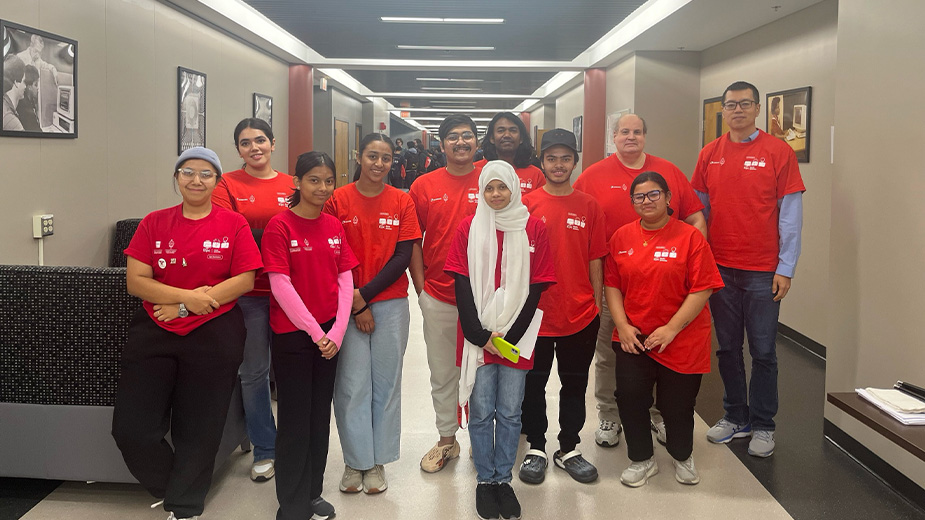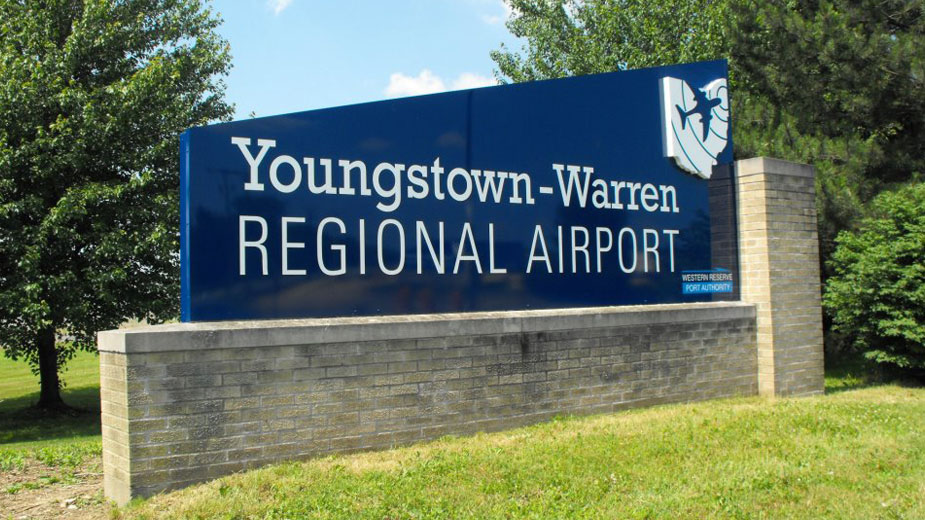Execs Tell YSU Students How to Launch a Career
YOUNGSTOWN, Ohio – Employers perform background checks – including viewing social media – on the candidates they consider hiring.
Students in high school and college seem oblivious to this fact, often to their detriment, say Pamela Vass and Christine Costello. Teenagers naively believe that their pages on Facebook are off-limits to all but their friends and acquaintances. Or that only their friends are interested in the silly photos and inane comments they post.
Vass, vice president of human resources for The Ellwood Group, Ellwood City, Pa., and Costello, who manages the internship program at the Williamson College of Business Administration, were among the speakers the college’s recentBusiness 2020 event.
“Your prospective employer will look you up on Facebook or some other Internet channel before your interview,” Costello warns.
Business 2020, started by Youngstown State University five years ago in conjunction with Junior Achievement of Mahoning Valley, hosts high school students to help them prepare for careers.
This year, more than 800 juniors and seniors at 22 high schools in the Mahoning Valley were exposed to what they must do to become “career ready,” as keynote speaker Melanie Cann put it. Cann is the vice president of human resources at the Cafaro Co., Niles.
More than 20 professionals from manufacturing and the financial services industries met with the students in three breakout sessions to share their experiences and encourage them to prepare for the world of work, whether after high school or college graduation.
As Cann noted, to become career ready, her audience would first have to make themselves “work ready,” then “job ready.”
Work readiness consists of being prepared to interview well while job readiness consists of being prepared to step in and perform the first day one reports for work. That encompasses knowing one’s goals and being persistent about completing assignments, which entails respecting others and working well with them.
Becoming work ready, whether at a for-profit or nonprofit entity, is often accomplished through internships, Cann said, as well as understanding the dynamics of the employers where students work to put themselves through college. “Everything is essentially business,” the Cafaro executive said.
“GPAs do matter,” Cann emphasized. “It’s one of the first things an employer looks at.” Thus she advised the high school students “to set yourself apart from the competition” by doing well academically.
In their breakout session, Costello and Vass offered advice on how to prepare for an interview:
- Dress appropriately. That usually means a business suit, dress shirt and tie for men and a blouse with a pants suit and/or jacket and skirt for women. And wear leather shoes that are polished.
Khakis and a polo shirt rarely cut it for men although high-tech companies have more relaxed dress codes – that means no tie – than bankers, accountants and lawyers.
- Know something about the firm before you interview. Visit its website or read some of its brochures or the annual report if it’s a public company.
- Be prepared to answer standard interview questions such as, “Tell me something about yourself,” “What are your qualifications?”
“The 15 most-asked questions in an interview can be found on the Internet,” Vass said. Moreover, it’s a good idea for students to rehearse their answers and do so in front of a mirror, Costello and Vass agreed.
- Don’t discuss compensation, benefits or time off. “That’s a later conversation,” Vass said.
- Most companies require candidates to pass a drug test, she pointed out, and evidence of “marijuana stays in your system up to three months.”
- In choosing email addresses, teenagers often adopt names they think reflect their carefree personalities, Costello says, such as “Iloveflipflops.com,” a turnoff for employers. “Limit [your email address] to your name,” she urged.
“If you want to be taken seriously,” Vass added, “be serious.” As Costello related, she presumed a candidate at Ellwood whose email address is “Colt45” would not be a good fit.
- “Ask for [the interviewer’s] business card so you can write a thank-you note afterward,” Costello said. Promptly.
Other speakers shared what they learned over the courses of their careers to counsel the students on what lies before them.
Camille A. Favre, senior vice president of human resources at Seven Seventeen Credit Union, advised the students to take at least one course in business administration regardless of the careers they pursue. “Everything’s pretty much [run like] a business,” she said. She based that statement on her seven jobs spread over three careers.
Few enter college knowing the career they want, Favre said, so they shouldn’t fear changing their majors. “Money is not the only reason to pick a career,” she said, “but you’ve got to eat,” that is, choose a career you like.
It might pay less but the psychological and emotional rewards are as important as any financial benefits. “I took a cut in pay to come home [to the Mahoning Valley from Chicago],” she said. “I wanted my kids to grow up where I grew up [Canfield].”
Those who perceive business as drudgery are mistaken. “Business is not all work and no play,” Favre said. “You can have fun.”
Pictured: Melanie Cann, left, and Betty Jo Licata, right, welcome Joe Fortini and Nadiya Stokes to campus. Licata is dean of YSU’s Williamson College of Business Administration. Cann is the Cafaro Co. vice president of human resources.
Copyright 2024 The Business Journal, Youngstown, Ohio.



